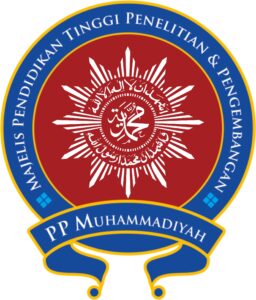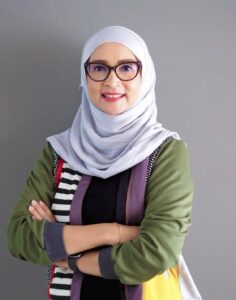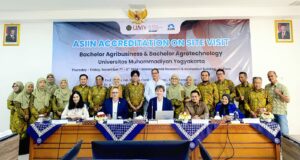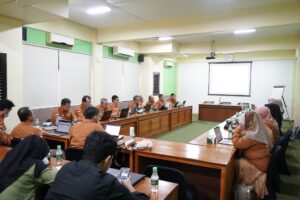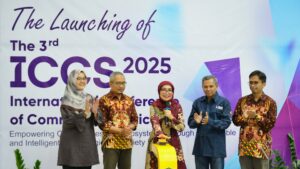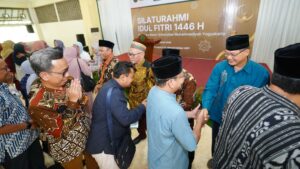Zakat is one of the mandatory guidelines for Muslims who are able to afford zakat. In addition, zakat functions as a sustainable development method for the benefit of the people. Seeing this, the UMY International Program of Islamic Economics and Finance (IPIEF) held a thematic discussion of Islamic knowledge on Tuesday (18/2) at the UMY Postgraduate Building.
The discussion that presented Prof. Dr. Hamidullah Marazi (Head of the Department of Religious Studies of the Central University of Kashmir, India) discussed the theme “Zakat as a source of sustainable development”. In discussing the theme, it aims to add insight to students related to the application of zakat as sustainable development.
Prof. Dr. Hamidullah Marazi said that there is a legal basis that has been stated for the practice of zakat and who gives it. “We can open Surah At-Taubah Verse 60. In the surah, we can see that there are some people who have the right to receive zakat, namely for the needy, poor, amil (distributors of) zakat, those who are softened (converts), to (freed) slaves, for freeing those who are in debt, for the way of Allah and for those who are on their way, as an obligation from God. Therefore it has been made clear that the recipients of zakat have been determined by God and we cannot change this mandate arbitrarily,” he explained.
Hamidullah also explained that the zakat distributors called Amil include functionaries such as collectors, entrepreneurs, expenditure controllers, account auditors, and others. “In this function, Amil includes the entire administration, civil, military and diplomatic fields. They can be paid for their time and energy from zakat if they are able to do it, “he explained.
In his explanation, Hamidullah explained that the jurists had determined unanimously in accordance with the guidance of the Qur’an and Hadith supporters that Zakat cannot be spent on projects that will promote interests and be of benefit to the Muslim community, such as hospitals, roads, bridges, and the like.
In verse 60 of the Surah At-Taubah, the first group entitled to charity is fuqara. Fuqara in Arabic means all people who depend on others for their living needs. Fuqara is a common term for anyone in need of physical, or old age, or temporarily unable to live and becomes independent if they are assisted such as orphans, widows, the unemployed, and others.
“Therefore, Sadaqah or commonly referred to as voluntary charity can be given for many other purposes, such as building mosques and schools, while zakat cannot be used for mosque construction or school construction. Zakat is meant to help people who really need help in accordance with the provisions contained in the Qur’an,” he concluded. (Sofia)
